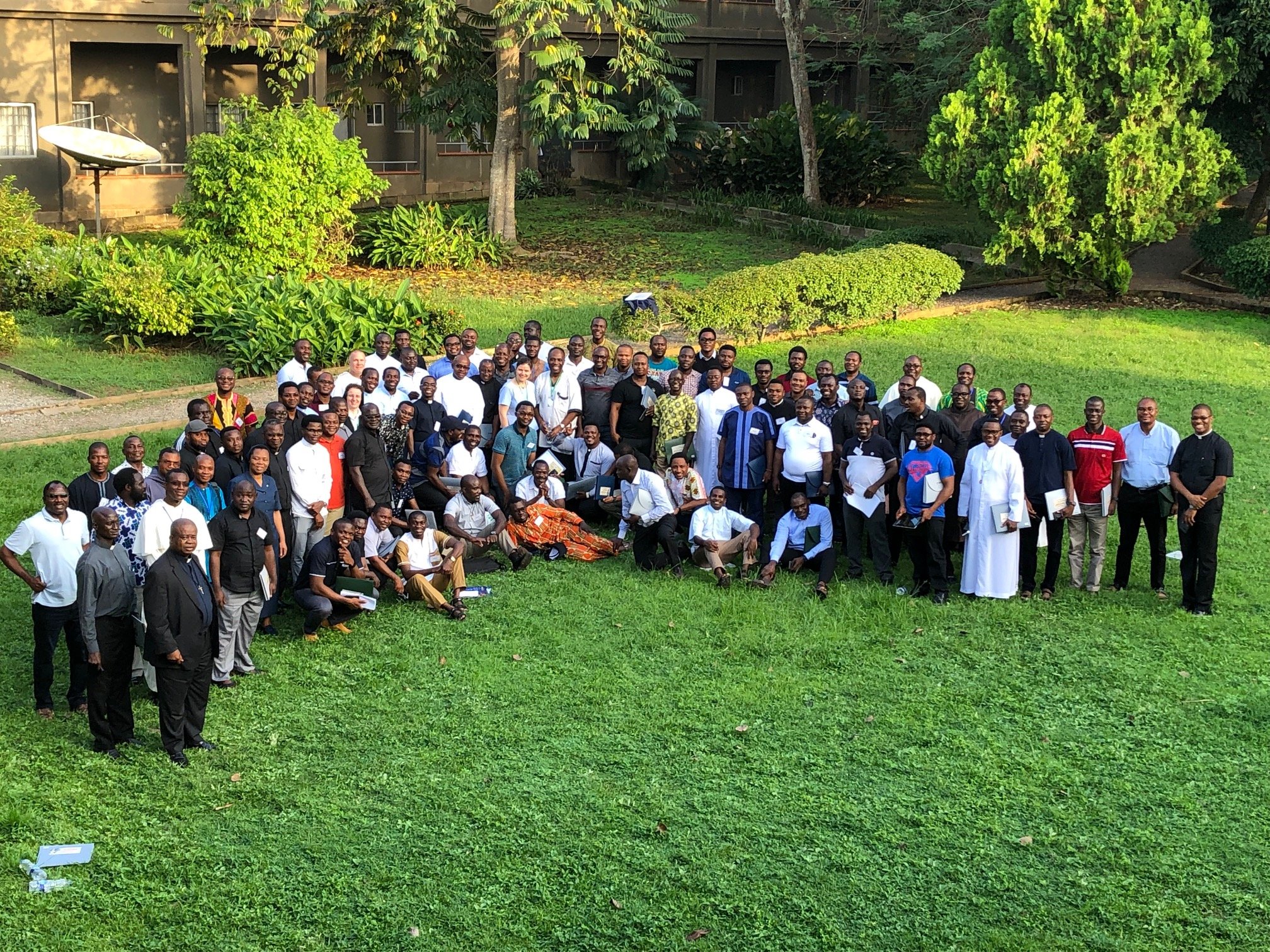
Reflection on the “Abuse of Power: Clerical Sexual Abuse of Minors” Workshop
"If, in the past, the response was one of omission, today we want solidarity in the deepest and most challenging sense, to become our way of forging present and future history." (Pope Francis, 2019).
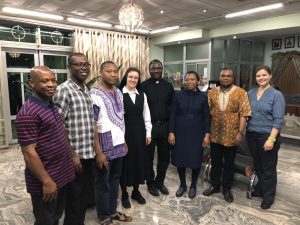
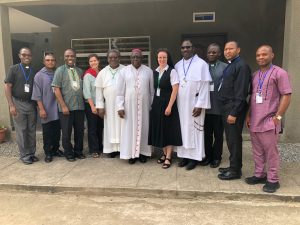
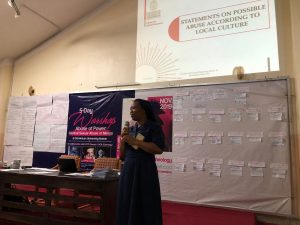
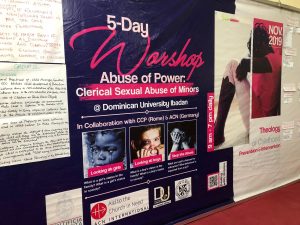
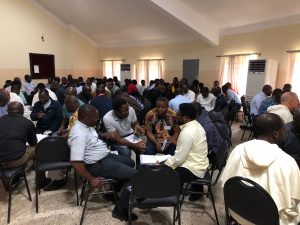
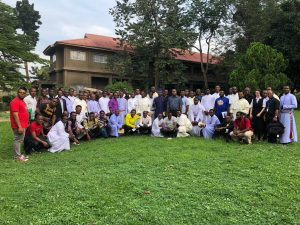
Pope Francis’ clarion call to profound conversion of hearts in the face of sexual abuse, abuse of power, and the abuse of conscience perpetrated by a significant number of clerics and consecrated persons found a response at the Dominican University in Ibadan, Nigeria. The workshop took place from the 8th to the 15th of November, 2019.
This noble institution played host to 128 priests from 15 Dioceses and 13 Religious Congregations, 89 Seminarians from 4 major Seminaries in Nigeria with two participants from Cameroon and one from Congo. They came together to deliberate, discuss, and forge a way forward for the church in Nigeria in a workshop organized by the Congregation of the Order of Preachers (Dominicans) Province of St. Joseph the Worker, Nigeria, and Ghana with Rev Fr. Richard Ogedengbe OP as the Provincial and Rev Fr. Stephen Ogbe OP as the lead organizer.
This workshop with three partners – Aid to the Church in Need International, The Order of Preachers (Dominicans), and The Centre for Child Protection – Pontifical Gregorian University Rome, is the first of its kind on African soil since the outcry of clerical sexual abuse over two decades ago. It was sponsored by Aid to the Church in Need International and facilitated by the Centre for Child Protection – Pontifical Gregorian University, Rome led by Rev. Sr. Karolin Kuhn, SSND and Sr. Bernardine Pemii, DC.
The workshop’s theme was: “ABUSE OF POWER: CLERICAL SEXUAL ABUSE OF MINORS.” The facilitators’ unique pedagogical method enhanced the interplay of participants and the workshop content. Mentoring participants to make a paradigm shift from the cognitive to the affective and psychomotor created an empowering atmosphere for participants to share freely, making the sessions highly interactive. They retraced their childhoods, identifying the met and unmet needs and rights of children.
Interactions and sharing grew as the workshop delved deeper into the content with focus on the culture of participants. It is worth noting that the somewhat initial resistance to face the reality of this hideous acts in our beautiful church (which is expected at the start of such a workshop), gradually evaporated as participants dived into their present realities to discuss the risks and protective factors in their cultural settings.
The input and discussions on forms/types of abuse and their consequences and culturally sensitive ways of dealing with victims and perpetrators unearthed some repressed emotions within some participants. I, Sr. Bernardine, was edified by the courageous admittance of some participants who identified themselves as ‘victims,’ having been violated at some point or another in their lives. This was heroic, bearing in mind the culture that looks at the man as the strong one and the woman as the weak one, thereby inhibiting the man from reporting or talking about himself as a victim of any form of abuse whatsoever.
Another peak moment of engagement with participants was the exploration into societal views and expectations of priests in Nigeria. The unique discovery could account for the teaming number of young people, children, and adults parading to church in Nigeria. This rich cultural heritage, if harnessed properly can create a haven for safety of children and vulnerable adults. On the other hand, it unearthed critical risk factors that could create favorable breeding grounds for abuse of power and sexual abuse of minors/vulnerable adults and possible coverups.
This workshop is the hope of the Church in Nigeria as the beneficiaries have seen the need to ‘ACT NOW’ as reflected in the responses of some of the participants captured below in the form of a ‘Letter to their Bishops/Superiors’:
“Bishop, the church is sitting on a time-bump with regards to child/minor abuse. Thus, the following must be done: proper/comprehensive assessment of those going into the seminary formation and total orientation of priests to avoid further damage.” (participant)
“Abuse of power with special reference to abuse of minors/vulnerable adults in Nigeria is a reality and a ticking time bomb that may explode at any moment. The victims need to be protected and the perpetrators need to be helped to get help and prevented from further perpetration.” (participant)
“The scandal of clerical sexual abuse may soon blow up in Nigeria. The earlier Bishops, priests, and religious in Nigeria become enlightened about and empowered for causes, prevention and remedies, the better for the Nigerian church.” (participant)
“We (the church) are in trouble and sitting on a keg of gun powder because there are a lot of abuse cases that have been swept under the carpet and would cause damaging scandal for the church, both in Nigeria and throughout the world.” (participant)
“This workshop has opened my eyes to the many ways priests can abuse their power and authority in the course of discharging their responsibility that they or others may not easily notice or acknowledge. Many of these are seen and regarded as culturally right or approved. Many in formation are abused psychologically, physically, emotionally, sexually and verbally. This workshop is very necessary for everyone in the vicariate. I recommend it.” (participant)
“I feel privileged to have been sent to attend this workshop. At the workshop, through all the extensive and practical group sharing on the issues of childhood in Nigeria and risks of abuse of power (abuse of minors/vulnerable adults), I am of the opinion that these issues are very much still with us and at present are smouldering. It would be of great importance if all priests working in the diocese are made to have a share of the fruits of this workshop. This would go a long way to possibly help to stem the tide of abuse of power by clerics.” (participant)
Conclusion
"It is essential that we, as a Church, be able to acknowledge and condemn, with sorrow and shame, the atrocities perpetrated by consecrated persons, clerics, and all those entrusted with the mission of watching over and caring for those most vulnerable. Let us beg forgiveness for our own sins and the sins of others.” (Pope Francis to abuse victims in Pennsylvania, 2019)
The church in Nigeria stands a better chance of preventing the anticipated tsunami if the participants’ recommendations to take proactive measures rather than waiting for an outbreak are heeded by the Bishops and Congregational Leaders.
Sr. Bernardine Pemii, DC







